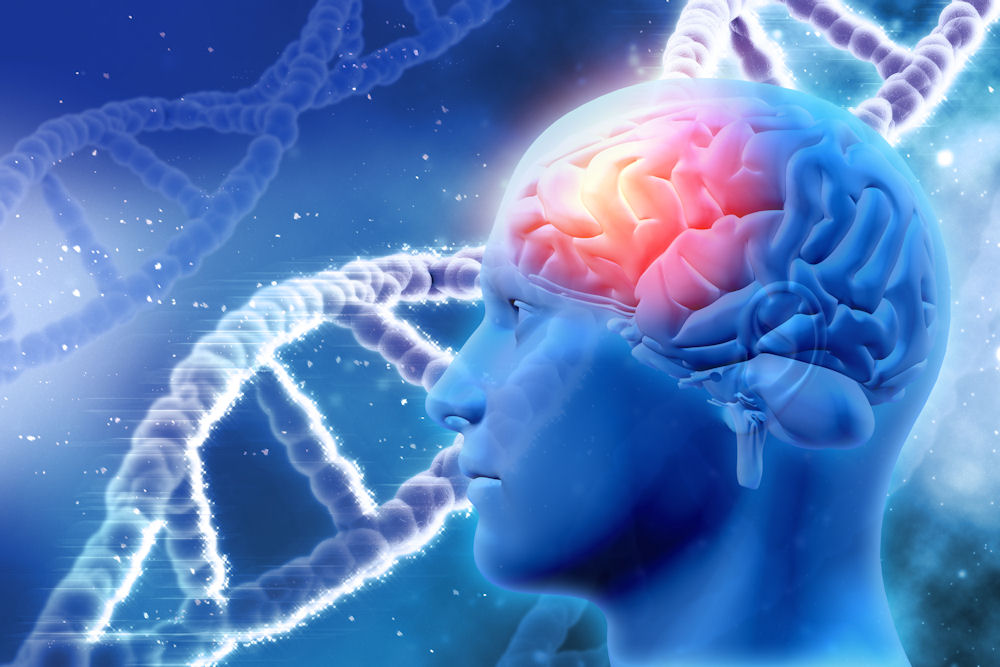Alcohol has been a part of human societies for millennia, playing a role in celebrations, rituals, and social gatherings. While moderate alcohol consumption is often accepted, for some, drinking can spiral into a destructive pattern known as alcoholism, or alcohol use disorder (AUD). Environmental factors like social pressure and stress play a significant role, but emerging research also highlights the important contribution of genetics to an individual’s risk of developing AUD. This raises the question: is alcoholism genetic?
Studies have shown that genetic factors can influence the likelihood of someone developing AUD, with heritability estimates suggesting that genetic makeup accounts for a significant portion of the risk.
Northern Illinois Recovery Center in Crystal Lake, Illinois examines the complex relationship between genetics and alcoholism, exploring the evidence for genetic predisposition, the diagnostic criteria for AUD, associated health risks, and available treatment options.
Alcohol Use Disorder Diagnosis
The Diagnostic and Statistical Manual for Mental Disorders (DSM-5) provides a standardized set of criteria for diagnosing Alcohol Use Disorder. A diagnosis of alcohol addiction is made based on the presence of at least two out of eleven criteria within 12 months. These criteria encompass a range of issues, including:
- Craving or a strong urge to drink alcohol
- Continued alcohol use despite persistent or recurrent social or interpersonal problems caused or exacerbated by the effects of alcohol
- Recurrent alcohol use in situations in which it is physically hazardous
- Tolerance, as defined by a need for markedly increased amounts of alcohol to achieve intoxication or desired effect, or a markedly diminished effect with continued use of the same amount of alcohol
- Withdrawal symptoms
- Drinking more alcohol, or drinking for a longer time than intended
- Persistent desire or unsuccessful efforts to cut down or control alcohol use
- A great deal of time is spent in activities necessary to obtain alcohol, use alcohol, or recover from its effects
- Giving up or reducing important social, occupational, or recreational activities because of alcohol use
- Continued alcohol use despite knowledge of having a persistent or recurrent physical or psychological problem that is likely to have been caused or exacerbated by alcohol
Meeting two or three criteria indicates a mild AUD, while six or more suggest a severe form. Assess your drinking habits and potential risks by taking our free alcohol assessment.
Risk factors of an Alcohol Use Disorder (AUD)
The risk of developing alcohol addiction, or Alcohol Use Disorder (AUD), depends on a combination of factors, including genetics, environment, and personal habits. If you’re wondering whether you’re at risk, it’s important to consider both your genetic predisposition and the environmental influences in your life.
A family history of alcohol addiction can increase your risk. Genetics influence how your body processes alcohol and how your brain responds to its effects, raising the likelihood of developing a dependence.
Your environment also plays a key role. Peer pressure, stress, trauma, and exposure to alcohol in your social circles can influence your drinking habits. Growing up in a culture where heavy drinking is common or using alcohol to cope with emotional challenges increases the risk of AUD.
Your drinking patterns matter too. Regularly drinking large amounts or struggling to control your consumption are signs of potential risk. Using alcohol to manage stress, emotions, or social pressures is concerning.

Ultimately, both genetics and environment contribute to the risk of alcohol addiction. If you have a family history of addiction or are worried about your drinking habits, seeking support early can help prevent AUD.

Is Alcoholism Genetic?
Research shows that about 40-60% of the risk for developing alcoholism is linked to genetics, suggesting that inherited traits can make some individuals more susceptible to addiction. Genetic variations can affect how people metabolize alcohol. For example, the ADH1B gene, which helps process alcohol, can cause discomfort when drinking for some individuals, potentially lowering their risk of alcoholism. Similarly, the ALDH2 gene influences how alcohol is processed, and variations in this gene—common in East Asian populations—can cause unpleasant reactions to alcohol, reducing the likelihood of developing alcohol dependence. These genetic factors significantly impact how individuals experience alcohol and, ultimately, their risk of alcohol use disorder (AUD).
Beyond metabolic genes, variations in genes related to the brain’s reward system also contribute to addiction. These differences affect how the brain responds to alcohol, influencing the potential for dependency over time. While someone isn’t born with alcohol use disorder, they may be genetically predisposed to it. This genetic vulnerability, combined with environmental factors like early alcohol exposure or a family history of addiction, can increase the risk of developing AUD.
According to the National Institute on Alcohol Abuse and Alcoholism (NIAAA), about 13.9% of U.S. adults had alcohol use disorder in 2020. Genetics plays a significant role in the development of AUD, but environmental factors also have an important impact.
Genetics of Alcohol-Associated Diseases
Chronic alcohol consumption is associated with a wide range of health problems, and genetics can influence an individual’s susceptibility to these complications. These include:
Alcohol weakens the immune system, increasing the risk of infections like tuberculosis and pneumonia. Genetic variations in immune function can make some individuals more susceptible to infections when alcohol impairs their defenses.
Excessive alcohol use contributes to high blood pressure, heart disease, and stroke. Genetics can make certain individuals more sensitive to alcohol’s effects on the cardiovascular system, increasing their risk for these conditions.
Chronic alcohol abuse can cause severe liver damage and cirrhosis. Genetic factors, like variations in liver enzymes, can make some people more vulnerable to liver damage from alcohol.
Alcohol consumption raises the risk of cancers, including those of the mouth, throat, liver, and breast. Genetic differences in how alcohol is metabolized, such as in enzymes that process acetaldehyde (a toxic byproduct), can increase the risk of alcohol-related cancers.
Tests Used To Diagnose Alcoholism
Diagnosing alcohol use disorder (AUD) involves a comprehensive assessment, including:
The doctor gathers information about drinking patterns, symptoms (like cravings or withdrawal), and any alcohol-related health issues. A family history of alcoholism may also be considered, as genetics play a role in AUD.
A physical exam checks for signs of alcohol-related health problems such as liver damage, gastrointestinal issues, or neurological symptoms. Signs like jaundice or tremors can indicate alcohol dependence.
Mental health is assessed to identify co-occurring conditions like depression or anxiety, which often occur alongside AUD. Addressing these conditions is crucial for effective treatment.
Standardized tools like the AUDIT, CAGE Questionnaire, and MAST are used to assess alcohol use patterns and identify potential problems. These tools help determine the severity of AUD and inform treatment.
In some cases, laboratory tests such as blood alcohol content or liver function tests may also be used. Together, these assessments provide a complete picture for diagnosing AUD and planning treatment.
Treatment for Alcohol Addiction
Treatment for alcohol use disorder (AUD) varies based on the severity of the disorder and individual needs. Key treatment options include:
Drug and alcohol detox is typically the first step for those with severe alcohol dependence. Medically supervised withdrawal helps manage symptoms, ranging from mild discomfort to life-threatening conditions like seizures. Medical professionals monitor vital signs and provide medications to ease withdrawal, ensuring safety before further treatment.
FDA-approved medications help manage cravings and reduce relapse. Common options include:
- Disulfiram (Antabuse): Causes unpleasant reactions if alcohol is consumed.
- Naltrexone: Blocks the pleasurable effects of alcohol, reducing cravings.
- Acamprosate: Restores balance to brain chemicals, reducing cravings and promoting abstinence.
These medications can be used alongside therapy to improve recovery outcomes. A structured medication management program ensures that these medications are taken as prescribed, helping patients stay on track with their treatment plans and maximize their chances of sustained recovery.
Therapy addresses the psychological aspects of addiction. Cognitive-behavioral therapy (CBT) helps individuals change negative thought patterns and develop coping skills. Motivational interviewing resolves ambivalence about recovery, while family therapy improves communication and support within the home, promoting long-term recovery.
Peer support groups like Alcoholics Anonymous (AA) offer ongoing encouragement through a 12-step program. These groups help individuals stay motivated, share experiences, and maintain sobriety by connecting with others in recovery.
Treatment can be residential (inpatient) or outpatient. Residential programs provide 24/7 care, therapy, and support in a controlled setting. Outpatient programs offer flexibility for individuals to live at home while attending treatment sessions, balancing recovery with daily life. Both types focus on therapy, group support, and skill-building to aid long-term sobriety.


Seek Help at Our Alcohol Rehab Center
Is someone you know struggling with alcohol addiction? Seeking professional help is crucial. A comprehensive treatment program can provide the support and tools necessary to overcome AUD and achieve lasting recovery. At Northern Illinois Recovery Center, we offer specialized care tailored to help individuals address their addiction and rebuild their lives. Don’t hesitate to reach out to our team for guidance and support on the path to recovery. We’re here to help you take the first step toward lasting change.




